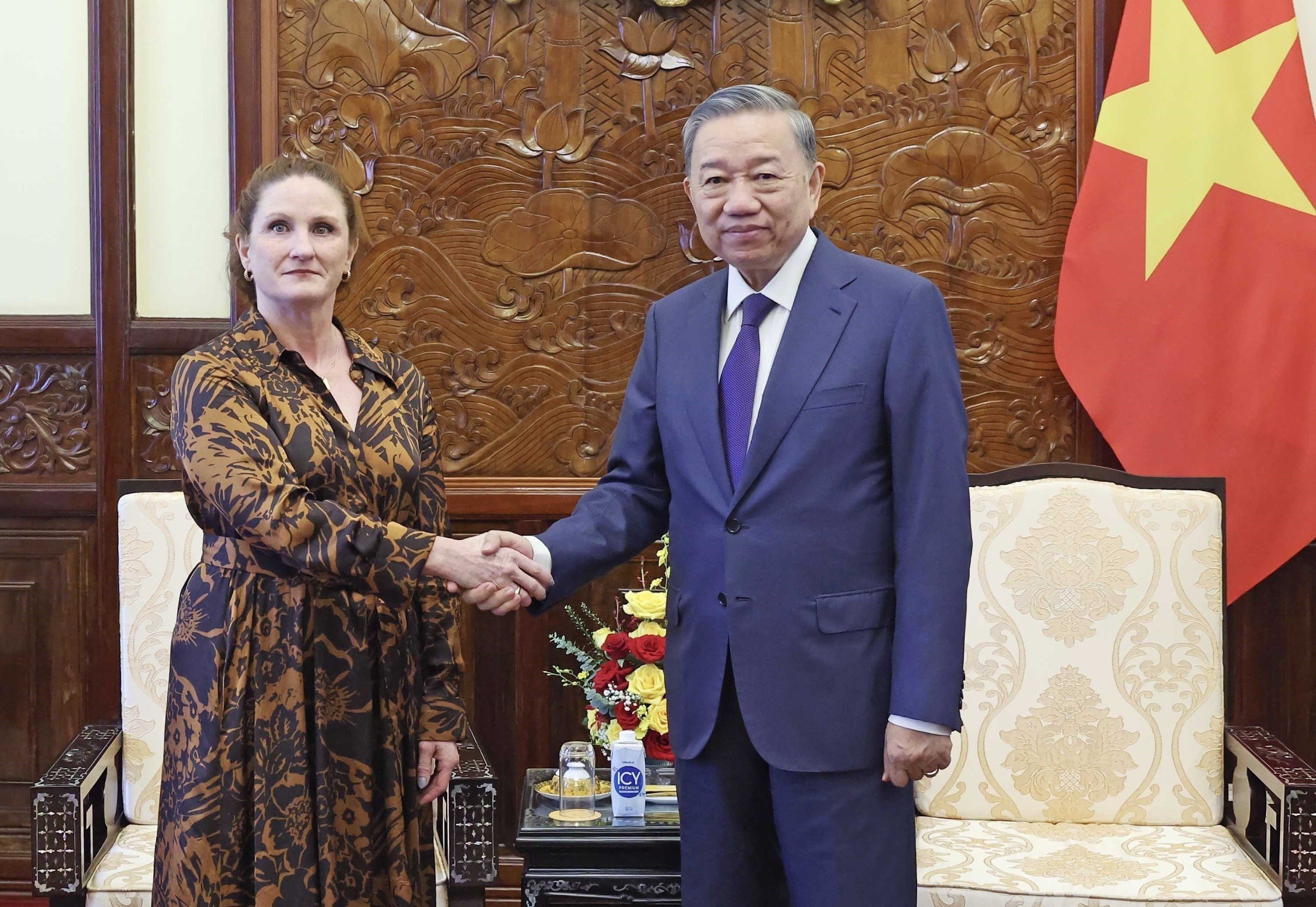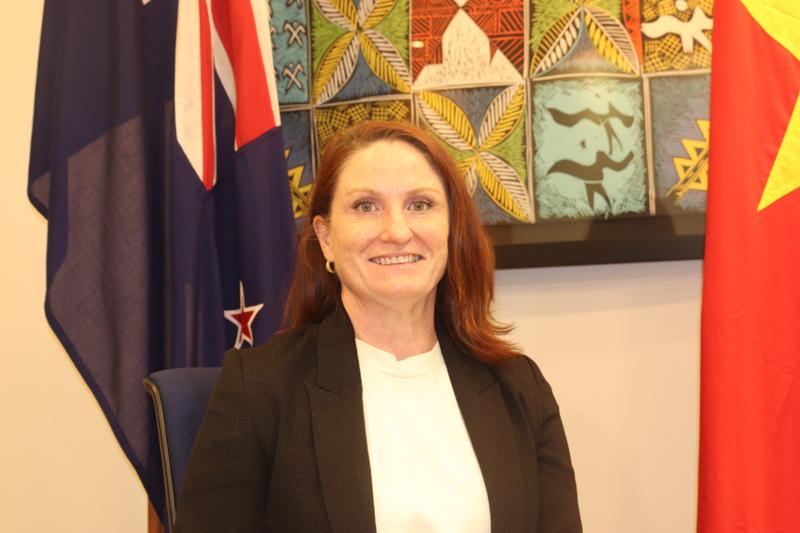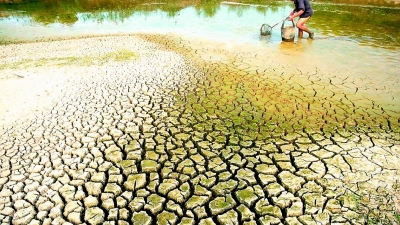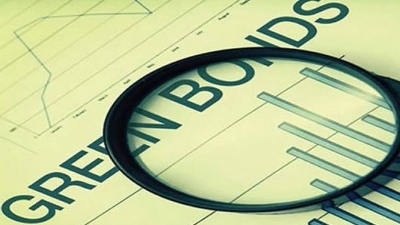How would you assess the current state of relations between Vietnam and New Zealand, particularly in terms of economic cooperation, investment, trade, and the implementation of the Vietnam-New Zealand Action Plan for the 2021-2024 period?
First of all, I would say that the bilateral relationship between Vietnam and New Zealand is thriving. Next year marks our 50th anniversary of diplomatic relations, and there has been an extraordinary amount achieved in those 50 years. Focusing on the last five years, there has been a significant uptick in interest by both countries and the political will to elevate our relationship, covering more issues in which we have shared interests and strengths.
Since we elevated our relationship with Vietnam to a Strategic Partnership five years ago, we have tremendously extended the areas we cooperate and collaborate on, in keeping with our modern partnership. We hope to extend these areas even further in the years to come.
One interesting thing is that while New Zealand and Vietnam are similar in geographical size, our populations are very different. Vietnam has 100 million people, whereas New Zealand has just reached 5 million. Despite being the smaller partner, New Zealand’s interests in the region are almost identical to Vietnam’s.
It makes sense that we would be looking to strengthen and extend our Strategic Partnership with Vietnam in the future. We hope to do this through negotiating a new strategic plan of action covering the next five years.
What are the strengths in the cooperation between Vietnam and New Zealand, particularly in economics, development, and investment?
I think there are some major strengths. First, New Zealand is a world leader in agriculture, not just in producing and exporting primary produce but also in agricultural technology. New Zealand’s culture emphasizes pragmatism and innovation, enabling us to lead in agriculture, innovation, and other high-tech sectors.
There are significant opportunities for Vietnam and New Zealand to collaborate in this area because Vietnam also has a crucial agriculture industry. We believe we can help Vietnam develop similarly to New Zealand since you have all the foundational pieces in place. This includes strong political will for sector development and integrated trade and economic relationships with key countries in the region and beyond.
Trade and economic integration are crucial for growing a country’s wealth, which is why New Zealand has always been proactive in these areas. New Zealand, out of necessity due to our small market, has developed technologies that support agriculture, which we believe can also benefit Vietnam. This collaboration could be commercially meaningful for both sides. For example, New Zealand specializes in data gathering and measurement technologies that increase productivity, efficiency, and profitability in farming.
We also have advanced technologies in climate resilience. For areas like the Mekong Delta, which is threatened by environmental change, New Zealand has technologies that can help address these challenges. Our agriculture technologies can grow more resilient and productive crops and livestock, and we can measure carbon emissions from different production methods to find optimal solutions for various areas in Vietnam. We are already working with Vietnam on many of these initiatives, and I believe there are opportunities for much more.
Can you tell us about some of the key points in New Zealand’s investment relations with Vietnam in the future?
Our current trade and investment figures are relatively small, which are areas we want to focus on significantly growing in the years to come. This growth will require education on both sides, and I believe the government can support this. New Zealand has the potential to provide intermediate inputs into Vietnamese manufacturing, where Vietnam holds a world-leading edge on other countries.
Vietnamese investment in New Zealand has been steadily growing, with a significant increase in the last 12 months. We expect this trend to continue as the two countries understand each other more. What we need is for New Zealand businesses to come to Vietnam, stay here, and learn about the market. It’s not enough for a company to bring a product already successful elsewhere and expect it to do well in Vietnam. The competition here is very high, and consumers are sophisticated. New Zealand businesses need to understand the Vietnamese market, exercise endurance, and partner with local distributors and companies to promote New Zealand brands.
Similarly, in New Zealand, there is already considerable Vietnamese interest and investment, and this will likely grow over time, especially as the Vietnamese diaspora increases. New Zealand has become a popular destination for Vietnamese people.
What we’re finding is that many Vietnamese who have studied in New Zealand at tertiary or postgraduate levels want to maintain those connections through their businesses. This provides a level of understanding and trust that will help grow our investment relationship over time.
How do you see relations between Vietnam and New Zealand in the years to come? What will be the focal point of cooperation for both countries?
I don’t think there is a single political focal point. The political will at the highest levels on both sides is for our relationship to become stronger, more important, more expansive, and more comprehensive. This means our relationship needs to cover a wide range of interests, including defense and security, education, science and research, trade, and collaboration in multilateral forums such as ASEAN, APEC, the WTO, and the network of trade agreements to which we are both members.

I believe that instead of focusing on specific areas, we should consider where the gaps are, how we can fill them, and the value of doing so for both countries. There are areas we haven’t explored for collaboration that have strong potential. For example, we have decided to start an annual oceans dialogue, which is the first time Vietnam and New Zealand have done this. It recognizes our shared interests in the marine environment, including marine governance, marine environment, and oceans management, as we share waterways.
Are there any areas in bilateral relations that need further improvement in the near future?
No, to be honest. I’ve only been in Vietnam for three months, not even quite three months now. But before I came here, I spent about a year learning about our relationship. What struck me is just how deep and extensive it is. I’m not sure most people realize how many areas New Zealand and Vietnam are already working on. It’s so extensive, it’s quite hard to keep track of.
At the moment, we are actually conducting an audit of the number of cooperation agreements and areas of collaboration we already have with Vietnam. This is to ensure that the public in New Zealand is aware of these and to use them to expand our relationship further when we start to negotiate our new strategic plan of action for the next four years.
You mentioned that New Zealand has had projects to help Vietnam fight the effects of climate change, especially in the Mekong Delta. Can you tell us more about some of these projects?
New Zealand has a significant climate finance fund managed by our international development project. We have three major projects in Southeast Asia, and Vietnam is the only country in the region supported by all three.
One of the major initiatives is the Asian Mega-Deltas program, focusing on creating climate resilience in the Mekong Delta through an agricultural lens. This substantial project will run from 2023 to 2026, helping farmers mitigate or adapt to climate change. Additionally, we are involved in a major disaster resilience and management project in Vietnam, specifically targeting dam safety. Given the numerous dams around Vietnam, this project aims to build local authorities’ capacity to strengthen these systems, ensuring the safety of communities living downstream. This is a substantial initiative and will likely extend into other projects.
So, we are developing significant relationships in the Mekong Delta.
In terms of agriculture, we recently completed a successful project that improved dragon fruit production for export to New Zealand. Building on this success, we have initiated a new project called Vietfruit. This features a team of leading New Zealand agricultural scientists working with Vietnamese passionfruit producers. With a budget of NZ$6.24 million ($3.8 million) over three years, the project focuses on soil quality, climate change impact, fruit varieties, packing systems, and post-harvest systems like cooling and export. This comprehensive initiative involves extensive collaboration with local passionfruit producers in Vietnam.
And finally, what do you hope to achieve in improving bilateral relations during your tenure as Ambassador of New Zealand to Vietnam?
We have some quite specific goals. I am guided by our strategic direction from Wellington. Our new government has prioritized Vietnam in our international relations. For the first time in New Zealand foreign policy, Southeast Asia has been prioritized alongside the Pacific.
So, my objectives here are very clear from my government: they want a closer, stronger, and larger relationship with Vietnam. They want to deepen our dialogue on strategic issues, specifically in our region, including the East Sea and some of the flashpoint issues that are threatening our neighborhood. We aim to improve our relationship with Vietnam as a partner in ASEAN and potentially elevate New Zealand’s relationship with Vietnam to a Comprehensive Strategic Partnership.
That’s a huge piece of work for this team. Achieving a Comprehensive Strategic Partnership with Vietnam would be extraordinary. We would be your smallest comprehensive strategic partner, but we believe we are a very valuable partner in many ways.









 Google translate
Google translate